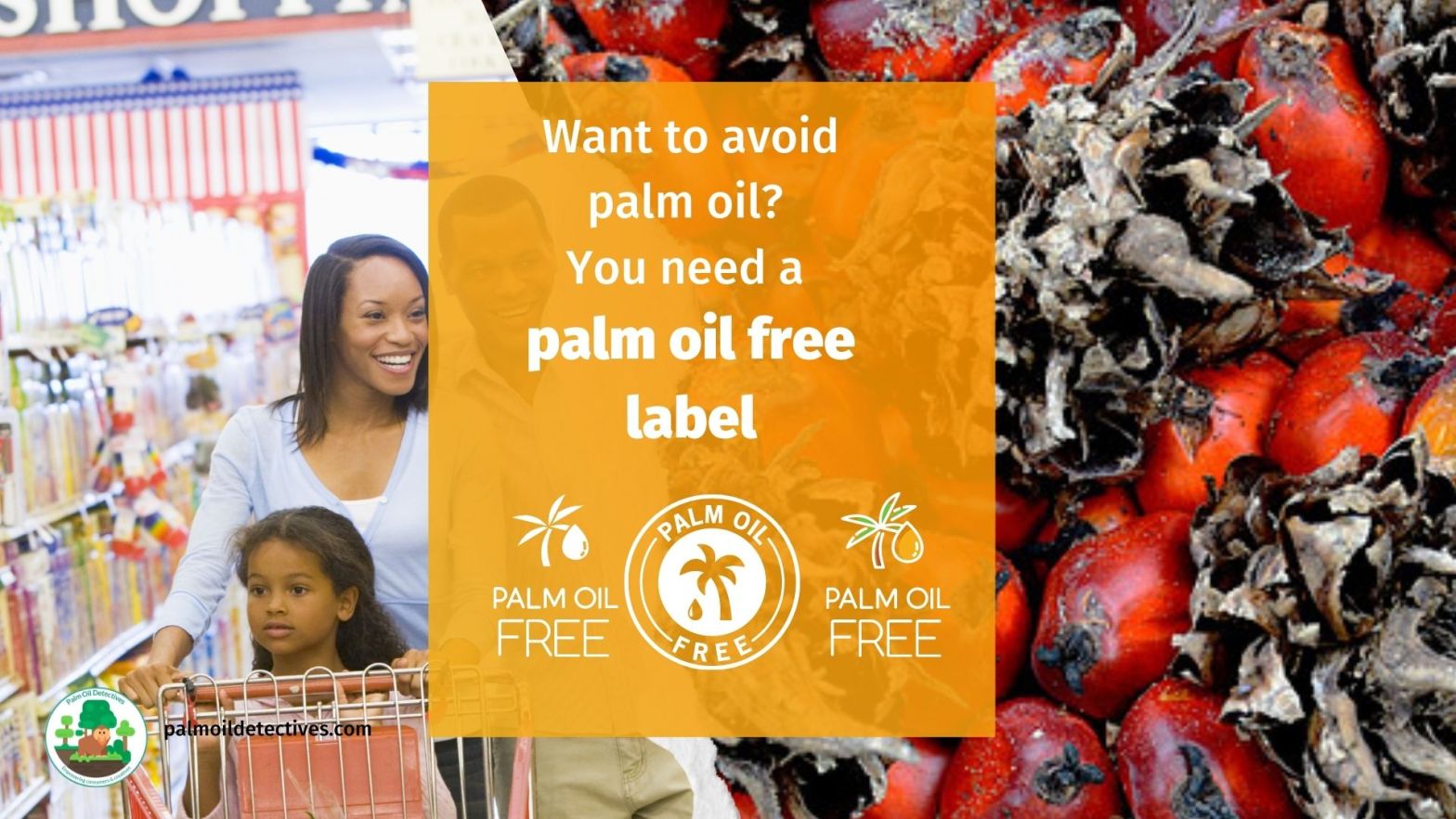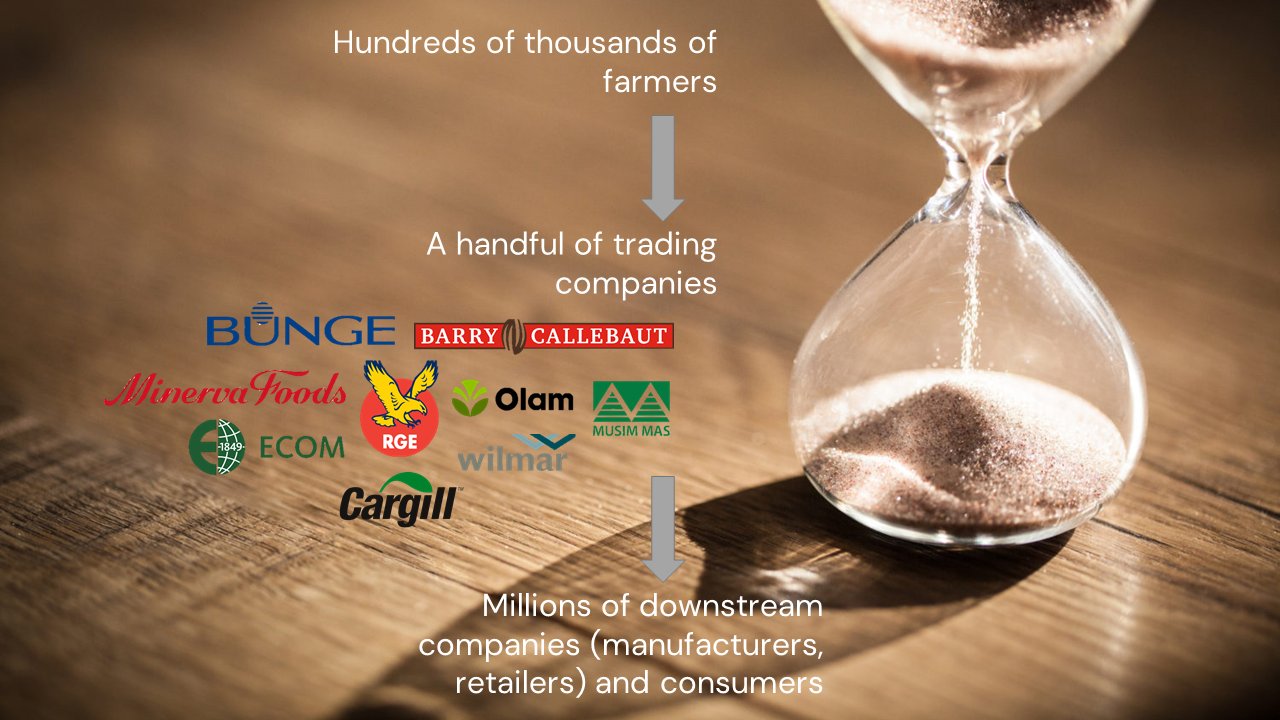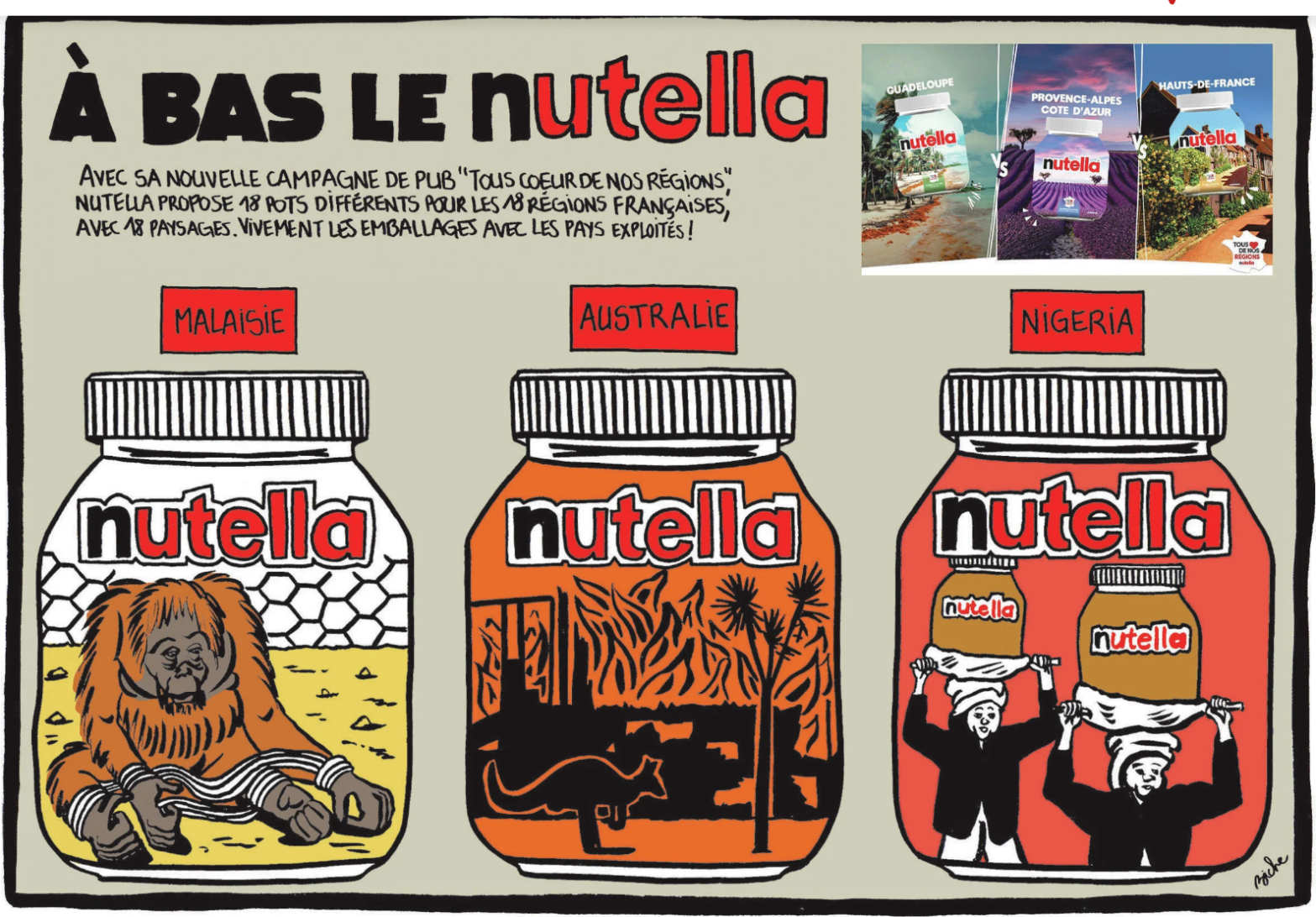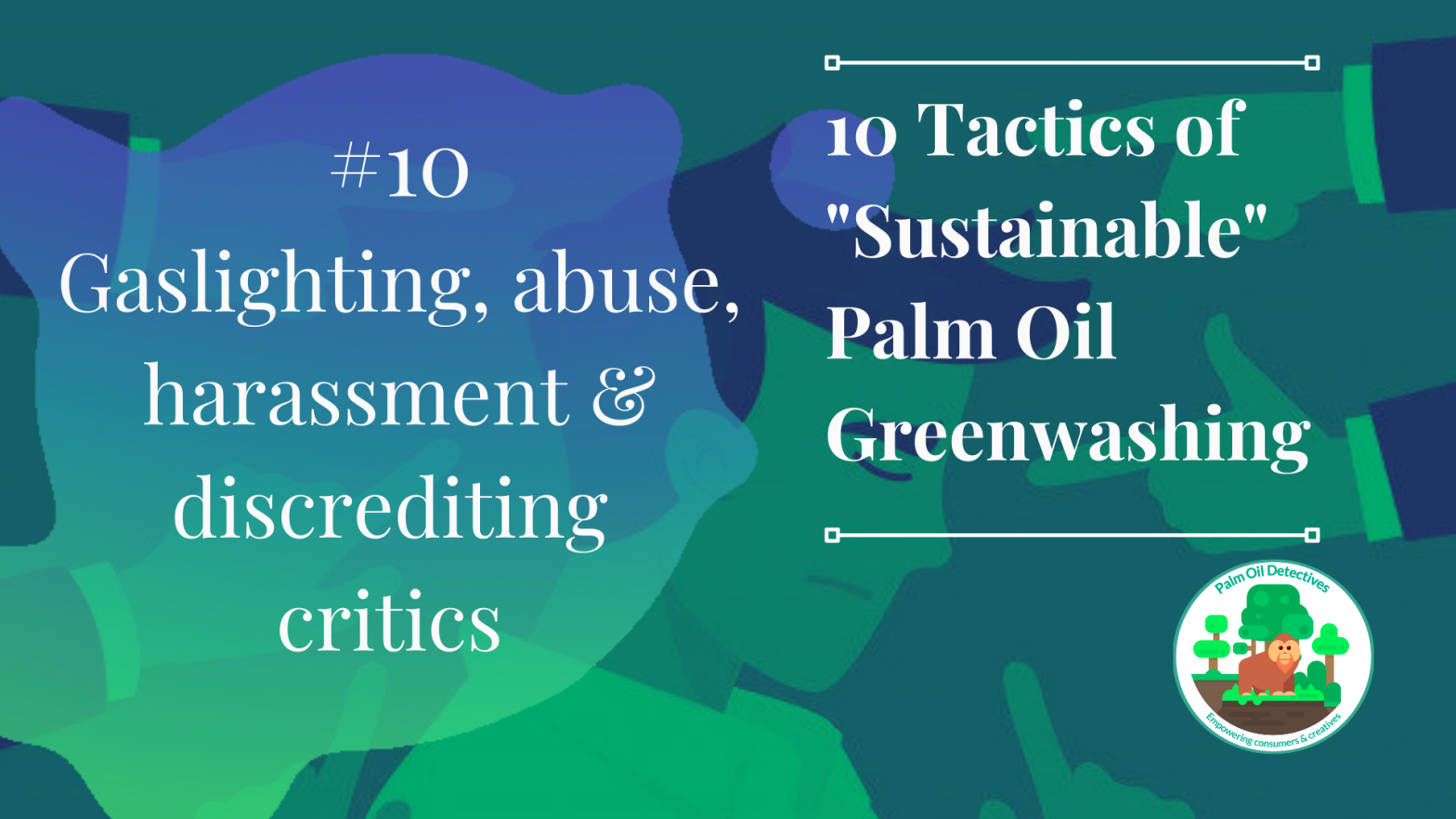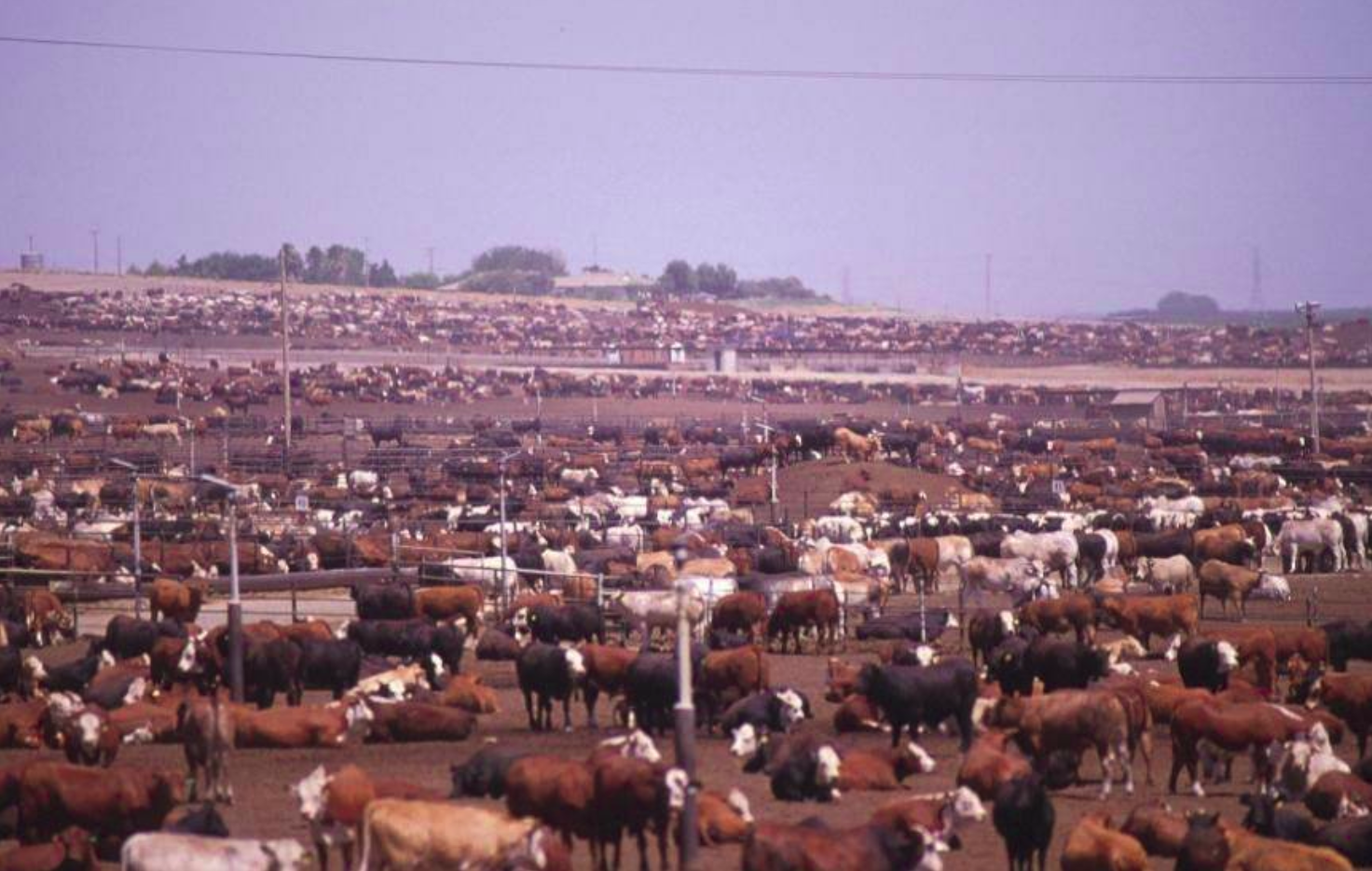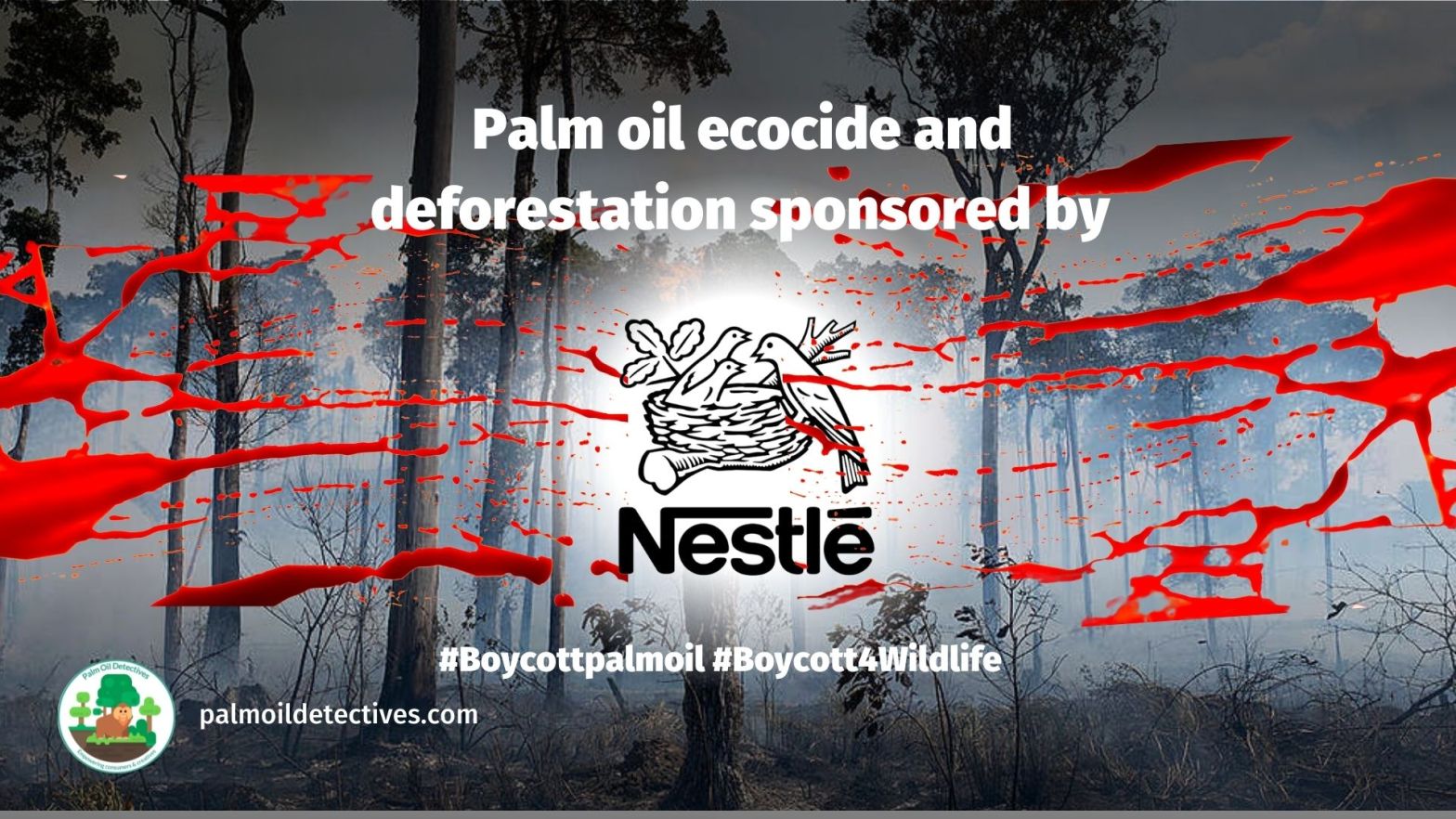This #Halloween, as you revel in the spooky tales and creepy costumes, remember that the most terrifying tale of all isn’t enjoyable folklore—it’s the horrifying truth about #palmoil. This ingredient causes #deforestation, #humanrights abuses, and indigenous land-grabbing. The production of palm oil casts a dark shadow over our planet, as it can only be grown on destroyed tropical rainforests. So-called “sustainable” palm oil used by the world’s biggest food brands like Nestle, Mondelez, Hersheys and Mars is a greenwashing lie. So don’t buy any of it! All palm oil threatens the very existence of wildlife, polluting our air and water, accelerates climate change, and tramples on the rights of indigenous communities worldwide. This Halloween, take action and use your wallet as a weapon. 🌍🌳🦍 #Boycottpalmoil #Boycott4Wildlife
Tag Archives: consumer boycott
Ultra-processed foods are trashing our health – and the planet
Our world is facing a huge challenge: we need to create enough high-quality, diverse and nutritious food to feed a growing population – and do so within the boundaries of our planet. This means significantly reducing the environmental impact of the global food system. Below is information about how you can identify ultra processed foods containing palm oil and other harmful additives, in order to avoid them – for your own health and the health of the planet.
10 reasons why ecolabels & commodity certification will never be a solution for importing tropical deforestation
In 2022, 71 environmental and human rights groups from around the world wrote to the EU Commission to warn that certification schemes and ecolabels were not sufficient to prevent human rights abuses and deforestation from entering the European Union. Thankfully in 2023 this has come to pass.
Fast forward to 2023, in the UK, industry lobbyists including Ferrero and serial greenwashing outfit Orangutan Land Trust have watered down the UK’s commitment to not importing deforestation into the UK. The new trade deal with Malaysia paves the way for mass importation of palm oil ecocide.
RSPO and FSC have been shown for decades to be ineffective and corrupt. They have failed in preventing human rights abuses, illegal land-grabbing, violence, deforestation, ecocide and species extinction.
So here are 10 reasons that UK should not rely on weak and ineffective certification schemes to enforce its zero deforestation mandate. Originally published by GRAIN
Want to avoid palm oil? You need a ‘palm oil free’ label
The most important factor determining whether consumers avoid purchasing a product containing palm oil is not how they feel about orangutans, the environment, or anything else for that matter. It’s whether they know what’s in the product. Melbourne Business School Research reveals that consumers’ ability to diagnose whether a product is made with palm oilContinue reading “Want to avoid palm oil? You need a ‘palm oil free’ label”
New research: Indirect sourcing of up to 90% of palm oil from Cargill, Wilmar, Musim Mas cannot be traced and is linked to deforestation
New research: Indirect sourcing of up to 90% of palm oil from Cargill, Wilmar, Musim Mas cannot be traced and is linked to deforestation
Boycotts are a crucial weapon to fight environment-harming firms
Bill Laurance, James Cook University Campaigns and boycotts get the attention of large corporations, because they hit them where it hurts: their reputation and market share. In October 2000, I was driving through downtown Boise, Idaho, and nearly careered off the road. Just in front of me was a giant inflatable Godzilla-like dinosaur, well overContinue reading “Boycotts are a crucial weapon to fight environment-harming firms”
Organized crime is a top driver of global deforestation – along with beef, soy, palm oil and wood products
Jennifer Devine, Texas State University Every year the world loses an estimated 25 million acres (10 million hectares) of forest, an area larger than the state of Indiana. Nearly all of it is in the tropics. Tropical forests store enormous quantities of carbon and are home to at least two-thirds of the world’s living species,Continue reading “Organized crime is a top driver of global deforestation – along with beef, soy, palm oil and wood products”
Greenwashing Tactic #10: Gaslighting, Harassment, Stalking and Attempting to Discredit Critics
Attempting to humiliate, gaslight, discredit, harass and stalk any vocal critics of a brand, commodity or industry certification in order to scare individuals into silence and stop them from revealing corruption Greenwashing’s most insidious and darkest form is the attempt to discredit, humiliate, harass, abuse and stalk individuals in order to silence individuals and stopContinue reading “Greenwashing Tactic #10: Gaslighting, Harassment, Stalking and Attempting to Discredit Critics”
Research about boycotts: do they work and why participate in them?
Corporates, certification lobbyists and all individuals with a financial stake in the profitability of corporate entities will naturally decry that boycotts are a waste of time and ineffective. However, is this true? Here is some research Do boycotts work? Answer: Yes…they do indeed! The #Boycott4Wildlife’s 9,000+ people who are passionate animal lovers and defenders ofContinue reading “Research about boycotts: do they work and why participate in them?”
Why join the #Boycott4Wildlife?
According to a 2021 survey by Nestle of 1001 people, 17% of millennial shoppers (25-45 years old) completely avoid palm oil in the supermarket. 25% said that they actively check to see if products contain palmoil. As a generation, we now have the opportunity to push our local communities and our children away from harmfulContinue reading “Why join the #Boycott4Wildlife?”
A global juggling act: feeding the world, saving species
Jim Radford, Deakin University Our planet is on the precipice of a sixth mass extinction event. But unlike the five previous mass extinctions, this one is man-made: a global biodiversity crisis in which species are disappearing three to 12 times faster than the “normal” rate of extinction. Australia is not immune from this crisis. InContinue reading “A global juggling act: feeding the world, saving species”
The rise of ultra-processed foods and why they’re really bad for our health
Phillip Baker, Deakin University; Mark Lawrence, Deakin University, and Priscila Machado, Deakin University Humans (and our ancestors) have been processing food for at least 1.8 million years. Roasting, drying, grinding and other techniques made food more nutritious, durable and tasty. This helped our ancestors to colonise diverse habitats, and then develop settlements and civilisations. ManyContinue reading “The rise of ultra-processed foods and why they’re really bad for our health”
Why you should stop buying new clothes
Alana James, Northumbria University, Newcastle The fashion industry is one of the most polluting industries in the world, producing 20% of global wastewater and 10% of global carbon emissions – and it’s estimated that by 2050 this will have increased to 25%. A staggering 300,000 tonnes of clothes are sent to British landfills each year.Continue reading “Why you should stop buying new clothes”
How our food choices cut into forests and put us closer to viruses
Terry Sunderland, University of British Columbia As the global population has doubled to 7.8 billion in about 50 years, industrial agriculture has increased the output from fields and farms to feed humanity. One of the negative outcomes of this transformation has been the extreme simplification of ecological systems, with complex multi-functional landscapes converted to vastContinue reading “How our food choices cut into forests and put us closer to viruses”
L’Oreal
‘Our goal is by 2020 to have none of our products linked to deforestation.’ L’Oreal’s website statement on palm oil This target has been and gone. Still, enormous environmental and social damage continues to be caused by L’Oreal and its palm oil. Despite being an RSPO member, L’Oreal continues to be involved in human rightsContinue reading “L’Oreal”
Nestlé
In 2020, retail giant Nestlé formed a coalition with other brands, virtue-signalling that they will stop all deforestation. Yet they continue to purchase palm oil from mills that chop down millions of hectares forests. View Nestlé’s palm oil deforestation for the past year Data courtesy of Palm Watch, a multidisciplinary research initiative by the UniversityContinue reading “Nestlé”
Research: Palm Oil Deforestation and its connection to RSPO members/supermarket brands
The RSPO is a global certification scheme for palm oil that certifies palm oil as ‘sustainable’. Yet this word means absolutely nothing, as RSPO members – the biggest supermarket brands in the world: (Unilever, Nestle, Colgate-Palmolive, L’Oreal, Avon, Mars, Mondelez, Cargill, Danone and more) continue with illegal indigenous landgrabbing, deforestation, human rights abuses, slavery andContinue reading “Research: Palm Oil Deforestation and its connection to RSPO members/supermarket brands”




